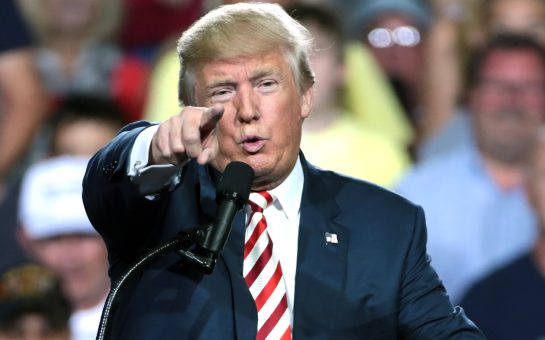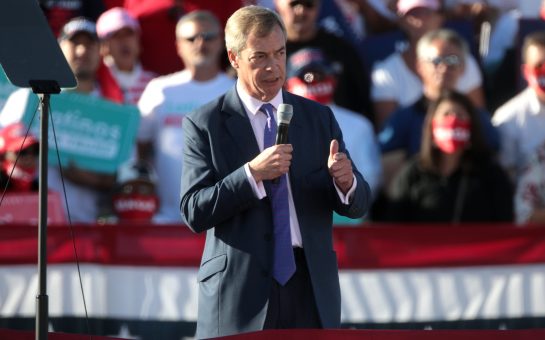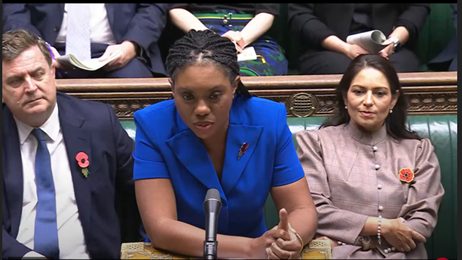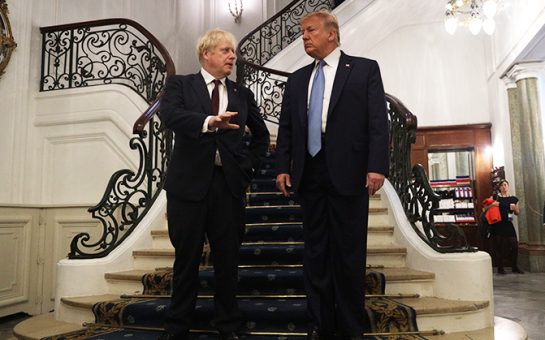Last December, Boris Johnson swept the Conservatives to a majority in Parliament. A year on, how did our Manchester MPs vote on the key issues in 2020?
In January, fresh from leading his party to a large majority in the Commons, Boris Johnson took to Facebook and said: “This is going to be a fantastic year for Britain.”
Things didn’t quite turn out that way. 2020 saw a pandemic, the end of the Brexit transition period, a split within the Labour party that threatens to spill out into civil war, and a certain joyride to Bernard Castle.
Last December, when Boris Johnson led the Conservatives to a resounding majority in the Commons, demolishing the Red Wall of northern Labour seats, he had one clear objective: deliver Brexit.
Nobody at the time predicted the chaos and destruction that COVID-19 would bring, and certainly no-one could have predicted quite how politicised the response to a health crisis would be.
So, one tumultuous year on, let’s look back at how our Greater Manchester MPs voted on significant pieces of legislation. The map below shows how your MP voted on what we consider to be the most significant pieces of legislation. A green tick means they voted for the bill, a red cross means they voted against, and a yellow dash means they abstained.
The votes sum up 2020 and reveal a lot about ideological splits, between parties and within parties.
Throughout 2020, we’ve seen Conservative MPs generally vote in line with the government, allowing Johnson to easily steer his flagship policies through Parliament, and defeating opposition motions. However, some Tory rebels have been unhappy with Johnson’s response to COVID lockdowns, and have sometime voted against the government on these measures.
However, the Conservatives’ record in Parliament over the past year has sometimes drawn the ire of the electorate. Their decision to close ranks and defeat the Free Schools Meals bill, in particular, was seen as out of touch. Their decision to break international law with the Internal Market Bill was met with incredulity and outrage.
Labour, on the other hand, are showing signs of splitting. Alongside the party’s anti-Semitism crisis, which led to Rebecca Long-Bailey’s suspension from the Shadow Cabinet and Jeremy Corbyn’s suspension from the party, Labour has had to deal with a split along ideological lines, neatly demonstrated by the Covert Human Intelligence Sources bill.
But first!
CORONAVIRUS
As soon as the pandemic reared its tragic head, it was clear it would dominate much of politics in 2020. People across the country were split ideologically about whether we should lock down, enforce facemasks, and what sorts of financial support to give people who needed it.
The Free School Meals really pushed the financial problems of the pandemic into the spotlight. In October, inspired by Marcus Rashford’s campaigning, Labour put forward an opposition day motion to extend school meal vouchers to vulnerable school children.
Supporters of the bill argued that because the impact of the pandemic was putting extraordinary pressure on vulnerable families, the government should extend the free school meal voucher scheme into the October half-term break.
However, the motion was always doomed to failure, with the Conservatives rejecting the principle of handouts, arguing that the restructuring of the benefit’s system was more than adequate to address the issue. Five Conservative MPs went against the government to vote to extend the scheme, but none from Greater Manchester.
The debates in the House surrounding Free School Meals were heated, with Angela Rayner having to apologise after she was accused of calling Chris Clarkson “scum”.
The decision of the Conservatives to vote down the bill also drew outrage from members of the public. The office of James Daly, MP for Bury North, was covered with paper plates and a sheet daubed with: “Voted to starve kids”.
The final Coronavirus-related bill is the clumsily named Health Protection (Coronavirus, Restrictions) (England) (No.4) Regulations 2020 Bill, which placed England into lockdown on 5th November. The vote was overwhelmingly passed, with support from Labour, but it’s interesting to note that a fair number of Conservative MPs voted against the government.
Sir Graham Brady, MP for Altrincham and Sale West, voted against the bill and said: “The government is reaching too far into the private and family lives of our constituents.”
“There is an- unintended perhaps- arrogance in assuming the government has the right to do so. That it has the right to tell people whether they can visit their elderly parents”, he said. “Whether it has any right, for heaven’s sake, to tell consenting adults with whom they are allowed to sleep.”
BREXIT
And now, we turn to the great monolith of Brexit. As Johnson’s flagship policy, it is clear the government would not tolerate any opposition to him pushing Brexit through Parliament, and all Conservative MPs would be expected to vote along the same lines as the government.
What is interesting, though, is the Internal Market Bill. This bill would allow the government to break international law by changing parts of the Withdrawal Agreement that the UK signed with the EU last year. This was met with astonishment by opposition MPs and brought fierce criticism from ex-PMs John Major and Tony Blair.
Astonished, opposition MPs queried whether the bill would actually allow the UK go against established international law, to which Northern Ireland Secretary Brandon Lewis said: “Yes, this does break international law in a very specific and limited way.”
In the end, all Greater Manchester MPs voted in line with their parties, and the bill was voted through. The Conservative MPs all voted with the government, with only Sir Graham Brady abstaining, since he was part of the Parliamentary Committee process.
COVERT HUMAN INTELLIGENCE SOURCES
The Covert Human Intelligence Sources (CHIS) is, even by this year’s standards, a very contentious piece of legislation.
The bill seeks to allow undercover security forces to engage in criminal activities to carry out their duties. Supporters say that the bill is vital to support the work of MI5 and other bodies, in turn protecting the public from serious crime and terrorism.
However, the bill has attracted a great deal of criticism. In October, Kate Allen, Director of Amnesty International UK, said: “MPs are signing off on a licence for government agencies to authorise torture and murder.”
Kier Starmer, who was a human rights lawyer, ordered Labour MPs to abstain from the vote. He argued that the illegal activities carried out by security forces should have a legal framework, and sought to reassure MPs by saying that the bill did not allow agents to breach the European Convention on Human Rights.
Some MPs on the left of the party defied the order and voted against the bill. Rebels such as Rebecca Long-Bailey argued that failing to vote against the bill went against Labour’s core principles.
She said several aspects of the bill were worrying, including the bill’s failure to expressly rule out the use of murder, torture, or sexual violence. She also criticised the fact that the bill would not provide compensation to innocent victims of criminal conduct and could potentially be used against legitimate trade-union activity.
The Bill has also been criticised by allowing a broad range of agencies to conduct criminal activity, including the Food Standards Agency.
Ms Long-Bailey said: “It undermines the rule of law and gives a green light to serious crimes.”
The bill is currently with the House of Lords for scrutiny.
With a vaccine on the way, and Brexit nearly done and dusted (maybe), will 2021 see a return to more “normal” politics? Will it be Johnson’s ‘Fantastic Year’? Or will the scars left by 2020 cause more division, more controversy and more drama? Join us next year to find out!



